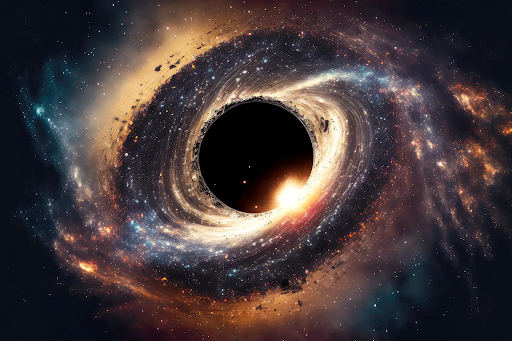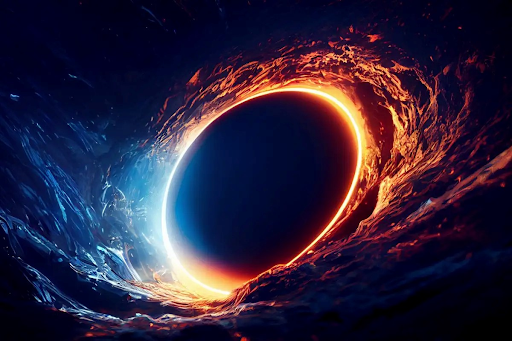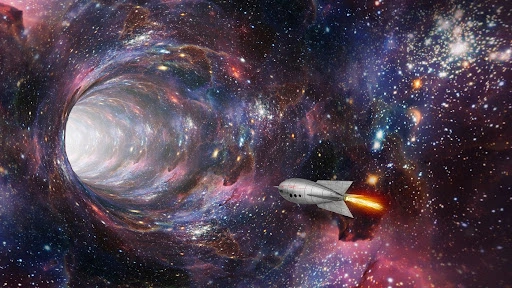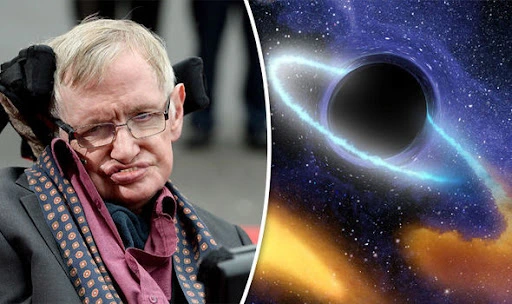
Do black holes lead to other universes???
This question lies at the heart of decades-long physics. Researchers are trying hard to get the answer to this question. So, in this article, we will try to explore the background, research, and some facts behind this significant matter.
Background
Scientists have discovered that inside black holes, particularly at points called “singularities,” gravitational fields become infinitely intense. This study challenges the fundamental principles of physics, demanding that the real world remains rational even in these extreme conditions. Scientists believe that a theory that unites gravity and quantum mechanics needs to fully understand what occurs at singularities.Singularities are typically limited within black holes, shielding us from their potentially dreadful effects on the external universe. Without a proper theory to describe singularities, the predictability of general relativity is incomplete.

The concept of cosmic censorship, introduced by physicist Roger Penrose in the 1960s, suggests that nature somehow prevents these singularities from existing in the universe. While researchers have suggested ways to detect naked singularities. Astronomers have not observed any such proof, leaving Penrose’s hypothesis unproven.
In recent years, advancements in computer models have revived interest in cosmic censorship. Physicists have explored scenarios where black holes might break apart to expose singularities. However, these models typically require more than three dimensions of space. These are seemingly conflicting with our universe as described by general relativity.
Regardless of this limitation, these studies provide valuable understanding. By analyzing these processes and their relevance to our universe, researchers aim to decide whether Penrose’s conjecture holds in an astrophysical setting.
One example involves the collision of black holes, which can occur in our universe. However, studies show that such crashes do not result in naked singularities in our reality; instead, the singularity remains within a black hole.
Could Black Holes be Portals to Other Universes?

A group of Russian astrophysicists has put forward a hypothetical suggestion that immense black holes, known to travel in space-time. It might actually serve as an entrance to a new world, or potentially let a spaceship navigate through space-time. Their study, published in the Monthly Directives of the Royal Astronomical Society, suggests that certain known black holes in the universe could be portals leading to these cosmic shortcuts.
Lead researcher Mikhail Piotrovich presented that the wormholes they are considering are of the passable variety, conceptually allowing spacecraft to journey through them. However, it’s crucial to note that our knowledge of the internal structure of wormholes remains limited, and their very presence is not verified.
Wormholes were initially theorized in the early 1900s when Albert Einstein introduced the idea in his theory of general relativity. They illustrate cosmic bridges that could connect faraway points in space, intensely reducing the time and distance required for space travel.
While the actual reality of these mysterious passages remains unverified. Piotrovich’s study suggests that some huge black holes in the universe might radiate energy that serves as entrances to wormholes. These link galaxies over extended areas of space and time. The study suggests that wormholes, if present, would emit a range of radiation, which could be identified.
The Hawking Paradox: Black Holes as Portals to Alternate Universes

In a 2016 study, Stephen Hawking presented a theory suggesting that black holes might not be as disastrous as previously considered. He published a paper in Physical Review Letters questioning the concept that black holes have “no hair”. It indicated that anything entering a black hole would be lost forever.
Hawking’s work was designed for the preservation of information and to manage a central paradox of black holes. It had long been unclear how information could be preserved if the object was completely exhausted by a black hole. According to Hawking’s theory, the information isn’t lost inside the hole but is instead stored on the boundary of the black hole.
This idea indicated that objects entering a black hole might not be completely smashed. Rather than being entangled within the black hole, they could reappear somewhere else, possibly in an alternate universe. Hawking stated, “Black holes are not the endless prisons they were once thought to be. If you feel you are trapped in a black hole, don’t give up. There is a way out.”
However, Hawking explained that this “way out” wouldn’t bring individuals back to their original universe but rather to a different one. He cited that the existence of alternative histories involving black holes makes this possibility possible, especially if the black hole is large and revolving.
During a lecture at Harvard University, Hawking proposed that the secret lies in how black holes can reserve such vast amounts of information. He suspected that rather than ruining this information, black holes could be transmitting it to other universes or returning it to our universe in entirely different forms. The exact mechanisms behind this process remain undefined, but Hawking’s hypothesis questions the established understanding of black holes as cosmic holes from which nothing ever appears.





